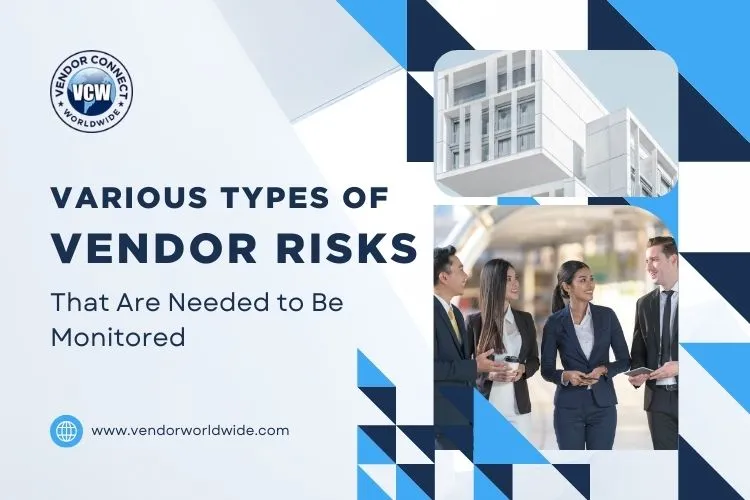
In today’s fast-paced world, companies can only be successful by relying on third parties. Outsourcing operations to such vendors can help businesses save significant amounts of capital and enhance operational efficiency. However, conducting a thorough vendor supplier registration process is imperative before selecting a third-party vendor to ensure that your organization has all the necessary information about the vendor you are planning to work with.
Vendors who have access to your data and network may be dangerous to your firm. Because of this, it is now essential for businesses to put in place a Vendor Risk Management program to protect themselves against risks related to compliance, operations, and reputation. This article is all about the vendor risks that need to be monitored for the benefit of the organization.
Various Types of Vendor Risks that Need to Be Monitored
Cyber security
In today’s world, monitoring your vendor’s cyber security posture is crucial due to the growing sophistication and speed of cyber threats. To assess third-party security performance, you must first identify your organization’s risk threshold and acceptable levels.
When evaluating performance, focus on compromised systems within vendor network environments and keep updating your evaluation criteria to align with evolving cyber threats. This ongoing process helps create a dynamic and resilient cyber security posture that effectively manages risks associated with third-party vendors.
Strategic risk
the danger arises when the choices and actions of a potential or existing vendor conflict with your company’s strategic goals. The vendor must be willing to allocate time, financial resources, or other means to guarantee the timely, cost-effective, and satisfactory delivery of your process, product, or service. For instance, a vendor’s failure to invest in more recent software could keep your company from accomplishing its strategic goals, including accelerating service delivery or creating a new product.
Regulatory risk
Compliance or regulatory risk is the possibility that a third-party vendor would violate a rule or regulation you have contractually obligated them to follow. In addition to internal institution policies, vendors must abide by all laws, regulations, and rules set forth by regulatory bodies that affect their business and industry. Your company can be subject to enforcement actions, hefty fines, and reputational damage if compliance requirements are not fulfilled.
Reputational risk
The conduct of your vendors may directly impact the public perception of your company. Keeping your vendors’ ethics and business practices consistent with your own is essential to controlling vendor risk categories.
System failure risk
A system failure can happen when your system cannot communicate with the system of a third-party provider or when their system goes down. Data loss, service interruptions, and even business downtime may come from this. A reliable backup strategy is one technique to reduce the chance of a system failure. You should demand that your suppliers have another plan that satisfies your requirements. You should also test your backup strategy regularly to ensure it functions as planned. But before getting the right vendor, it is essential to do pre-qualification Vendor registration for the organization’s benefit.
Financial risk
This includes risks such as exorbitant expenses or revenue loss due to vendors’ poor financial management. Regular audits are required to ensure that suppliers’ expenditures comply with the contract conditions. Identifying suppliers who are essential to generating revenue and monitoring their performance also helps to reduce this risk.
These are some of the vendor risk types that need to be monitored.





